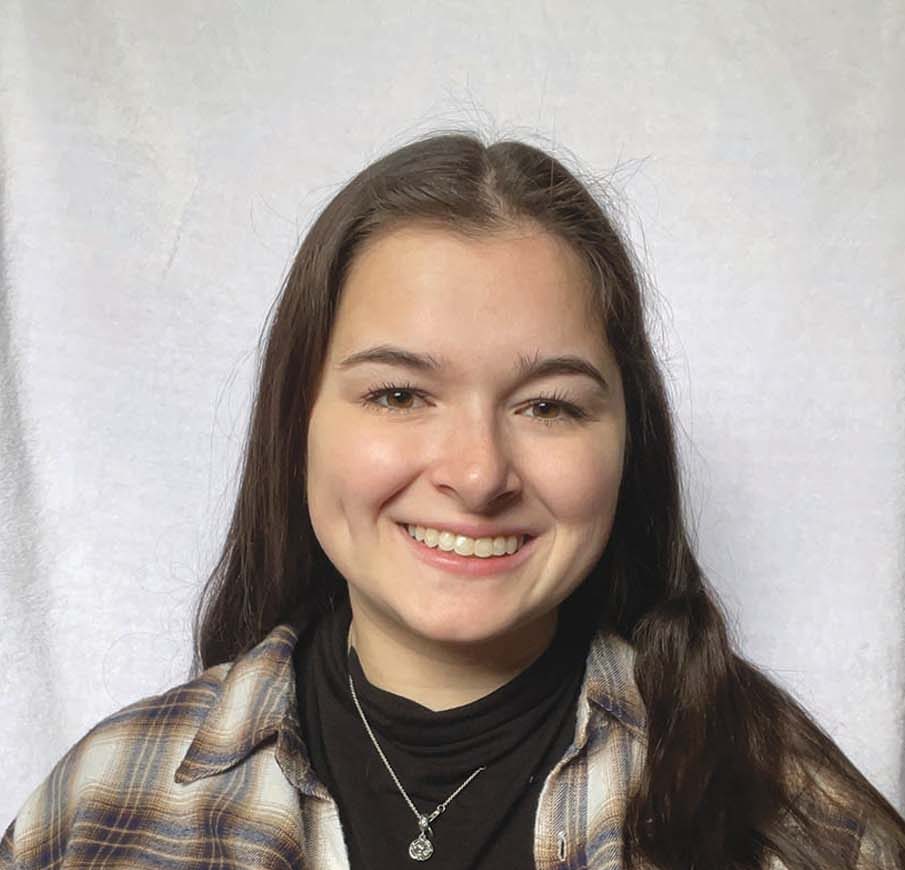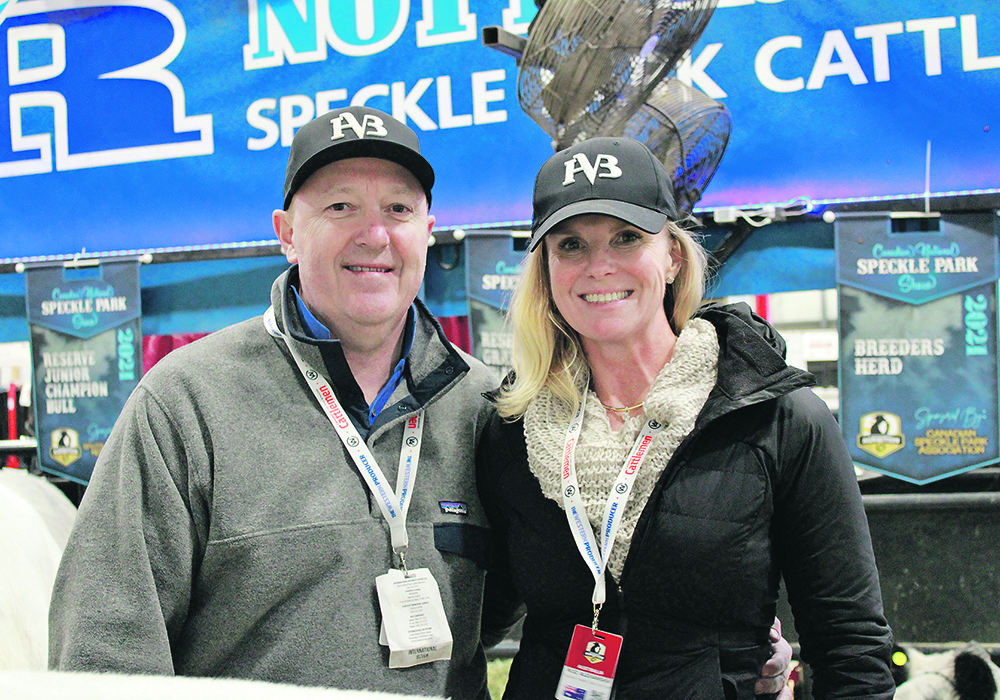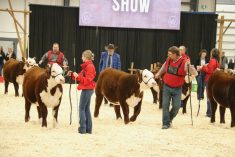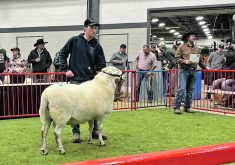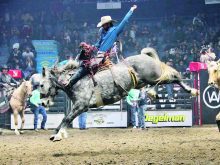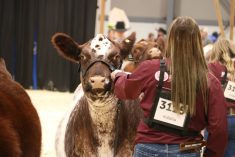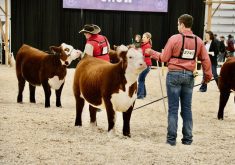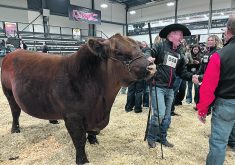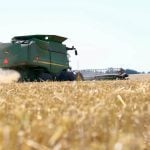A Canadian cattle breed, the Speckle Park has grown from exotic livestock to mainstream, international cattle status
When Jason Goodfellow started bringing his Speckle Park cattle to Regina’s Canadian Western Agribition in 2006, they were put in the same barn as the exotic animals.
Now, 15 years later, the Speckle Park breed has grown.
Goodfellow started breeding Speckle Park in the late 1990s, even though it didn’t become a recognized breed until 2006.
From the beginning, he recognized the value and potential in Speckle Park and stuck to that belief.
It’s paid off after he swept at Agribition with many wins, including Senior Champion Female, Junior Champion Bull, Reserve Junior Champion Bull, Reserve Grand Champion Bull, Pair of Bulls and Get of Sire, as well as Premier Breeder and Premier Exhibitor.
“We set ourselves up to do what we think we want to do within our breed, within our herd, within our capabilities,” Goodfellow said. “We were lucky to have a really good judge that has the same values that we do and has a high standard.”
Goodfellow and his farm, Notta Ranch, have been raising Speckle Park from the beginning, giving them years to perfect their genetics, which is one of the reasons why they do so well at shows like Agribition. And the quality of their genetics has not gone unnoticed.
Peter Alexander, a director for Hidden Valley Beef, is an Australian based out of Singapore who took an interest in Notta Ranch’s genetics.
“Year in and year out, you’re going to get really good meat quality, you get good temperament,” Alexander said of Notta Ranch.
Alexander and Goodfellow met at Agribition in 2017, when Alexander bought a Speckle Park bull from Notta Ranch.
“That bull ended up showing in the U.S.,” Goodfellow said. “And then he ended up being a three-time North American champion of the world and two time grand champion…. That was the first time that Speckle Park had ever reached that high.”
At the Speckle Park Agribition sale, purchases were made by Australian and United Kingdom buyers.
Goodfellow said the rise in popularity for the breed has been a long time coming.
“A lot of people think it happened overnight. But since we’ve been in it this long, we’ve kind of grown with the breed as well,” he said. “And I think the acceptability of these cattle now with the help of the Australians and creating that great big market. They used to be looked on as maybe a little bit exotic, because there wasn’t enough of them. Now, we have strength in numbers.”
Alexander said the market will keep growing, as well.
“It’s not just Australia, where there is a lot of demand. There’s going to be a lot of demand in the U.S., too,” he said.

With Agribition resuming after not staging a live show in 2020, Goodfellow said it was nice to be back, not only for the show itself, but because of the benefits it has for the breed.
“For the amount of people that come through these doors, this is a lot of work, but it’s still the easiest way to show people what we’re about. And this is the best way that we can reach people from England, Scotland, Ireland, Singapore, the U.S., Mexico, Australia, New Zealand, you name it, if we can get them here.”
Aside from Notta Ranch’s sweep at the Speckle Park show, KFC farms won Grand Champion Bull and Grand Champion Female.
At the sale, the top seller was Underhill Specs pick of the herd, which went for $55,000 to Australia. Two bred heifer lots averaged $7,500, 17 heifer calf lots averaged $6,935, six semen lots averaged $3,083, seven embryo lots averaged $5,457 and one flush sold for $10,000.
In the end, thethe gross sales totalled $254,600.

